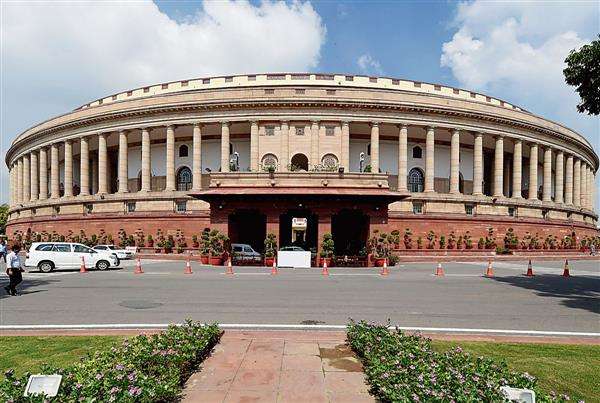The Centre on December 7 introduced the Multi-State Co-operative Societies (Amendment) Bill, 2022 in the Lok Sabha to improve the ease of doing business, increase financial discipline and enable the raising of funds in the multi-state cooperative Societies.
The Bill, which seeks amendment to the Multi-State Co-operative Societies Act, 2002, aims to improve governance, reform the electoral process, strengthen the monitoring mechanism, improve the composition of the Board, and also enhance transparency and accountability in the multi-state cooperative societies.
The Bill will incorporate the provisions of the 97th Constitutional Amendment.
The move was taken by the Centre in order to make the governance of multi-state cooperative societies more democratic, transparent, and accountable.
The bill contains the provisions for setting up of Cooperative Election Authority, Cooperative Information Officer, and Cooperative Ombudsman. As per the bill, the Authority will ensure that elections are held in a fair, free and timely manner, which in turn will help reduce incidents of complaints and malpractices.
The bill also encompasses provisions relating to the representation of women and Scheduled Caste and Scheduled Tribe members on the board of multi-state co-operative societies.
The amendments have also been proposed to enhance ease of doing business by reducing the period of registration with a provision for the applicants to seek additional time of two months for rectification of mistakes. The amendment also provides for electronic submission and issuance of documents, thus providing for a comprehensive digital ecosystem for multi-state co-operative societies.
Many Opposition MPs asked for the Bill to be referred to a Standing Committee for review stating that it encroached on the rights of States.
There is a clear indication that the Central government has been encroaching upon the territory of State governments [and] that is why protests are cropping up across the nation,” Leader of Congress in the Lok Sabha Adhir Ranjan Chowdhury said.
“This (Bill) may lead to the concentration of power of the Central government, which may impact the autonomy and functioning of the multi-state cooperative societies and create potential for misuse,” he said while observing that cooperative federalism should have been followed before the preparation of this Bill.
“Given the intricacies, given the ramifications and encroachment of State territory, this Bill should be referred to a Standing Committee,” he added.
The legislation sought to take away the rights of State governments and was against the federal structure of the country, Revolutionary Socialist Party (RSP) leader N.K. Premachandran said.
Certain provisions of the proposed legislation struck at the heart of the autonomy of cooperative societies, Congress leader Manish Tewari said.
Five clauses of the Bill were beyond the legislative competence of the House and certain provisions put an additional burden on the cooperatives and infringed on the cardinal principle of autonomous functioning as provided in Article 43B of the Constitution, he said.
At present, India has more than 1,500 multi-state cooperative societies.














